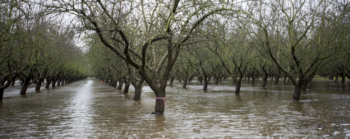2016
Weathering Change: The Impact of Climate and the Sustainable Groundwater Management Act on California’s Water
   |
Monday, April 4th, 2016 and Tuesday, April 5th, 2016 University of California, Davis UC Davis Conference Center Climate change and the Sustainable Groundwater Management Act (SGMA) will strongly influence water availability and allocation in California. Their joint consequences have received little attention thus far. Successful adaptation to hydroclimate change will hinge on new approaches to integrated water resources management in concert with SGMA. Can California adapt to these challenges, and if so, what is the best path forward? Please join us as we explore...
|
Conference details
Monday, 4 April
6pm, Kevin de León [video: http://ats.ucdavis.edu/ats-video/?kmid=0_0070pk7d]
6:45pm, poster session and networking reception
Tuesday, 5 April
Welcome
- Graham Fogg [video: http://ats.ucdavis.edu/ats-
video/?kmid=0_in9c7hml]
Session 1 -- Science.
The Sustainable Groundwater Management Act (SGMA) requires the end of groundwater overdraft by 2040, and this will have a strong influence on water availability and allocation in California. At the same time, climate change impacts to snowpack and precipitation patterns is sure to challenge California’s water management infrastructure by shifting the timing of water availability. SGMA could be an effective vehicle for supporting adaptation by promoting local groundwater governance. Nevertheless, both the uncertainties in hydroclimate science and the challenges of institutional development threaten timely and effective implementation. Advances in hydroclimate and decision-making science can inform policy-making to clear the roadblock of uncertainty, which, on the global scale, has hampered climate change mitigation and adaptation efforts.
- Michael Anderson (California State Climatologist, California Department of Water Resources)
- Rich Niswonger (Research Hydrologist, US Geological Service)
- Bill Blomquist (Professor of Political Science, Indiana University)
- panel discussion: [video: http://ats.ucdavis.edu/ats-
video/?kmid=0_rc777t4x]
Session 2 -- Policy.
Crafting effective policy is a balancing act between being scientifically informed and politically savvy. SGMA is a massive and unprecedented piece of legislation; it is too early to know the full extent of its impact on California’s water. Its success depends on a discourse between people from many different backgrounds, as these stakeholders will have a considerable impact on how SGMA will unfold. Examining the crafting, passing and implementation of SGMA will also lay the framework for other scientifically informed legislation.
- Tina Cannon-Leahy (Attorney, State Water Resources Control Board)
- video: http://ats.ucdavis.edu/ats-
video/?kmid=0_g99p00pp - slides:
- video: http://ats.ucdavis.edu/ats-
- Juliet Christian-Smith (Climate Scientist, Union of Concerned Scientists) [
- Rich Juricich (Principal Water Resources Engineer, California Department of Water Resources)
- panel discussion: http://ats.ucdavis.edu/ats-
video/?kmid=0_1vk28072
Session 3 -- Adaptation: Experiences and Experiments.
Water scarcity in California has led to innovative adaptations across municipal, agricultural, and environmental sectors. These solutions form in response to environmental and regulatory challenges that can no longer be ignored by farmers, disadvantaged communities, environmentalists, municipalities, and irrigation districts. These communities are experimenting with and adopting new practices in response to changes in water availability. Urgent challenges for successful water management in California include addressing the sustainability of irrigated agriculture, investigating the challenges and opportunities presented by SGMA, and discussing the difficulties and significance of community dialogues.
- Adam Hutchinson (Recharge Planning Manager, Orange County Water District)
- Brian Stranko (Director, Water Program, The Nature Conservancy)
- Kristin Dobbin (Regional Water Management Coordinator, Community Water Center)
- Brian Lockwood (Senior Hydrologist, Pajaro Valley Water Management Authority)
- Farmer panel: Don Cameron (Vice President and General Manager, Terranova Ranch, Inc., and member, California State Board of Food and Agriculture); Russ Lester (Dixon Ridge Farm),EmmaTorbert (Clover Leaf Farm)
- closing panel
Questions?
Contact Carole Hom, clhom@ucdavis.edu
Photo credits: Lake Oroville in 2014, ©CA Dept. of Water Resources; groundwater recharge in an almond orchard, JoeProudman/UC Davis; 2015 water distribution in Central California, ©J. Carl Ganter/circleofblue.org. Used with permission.
